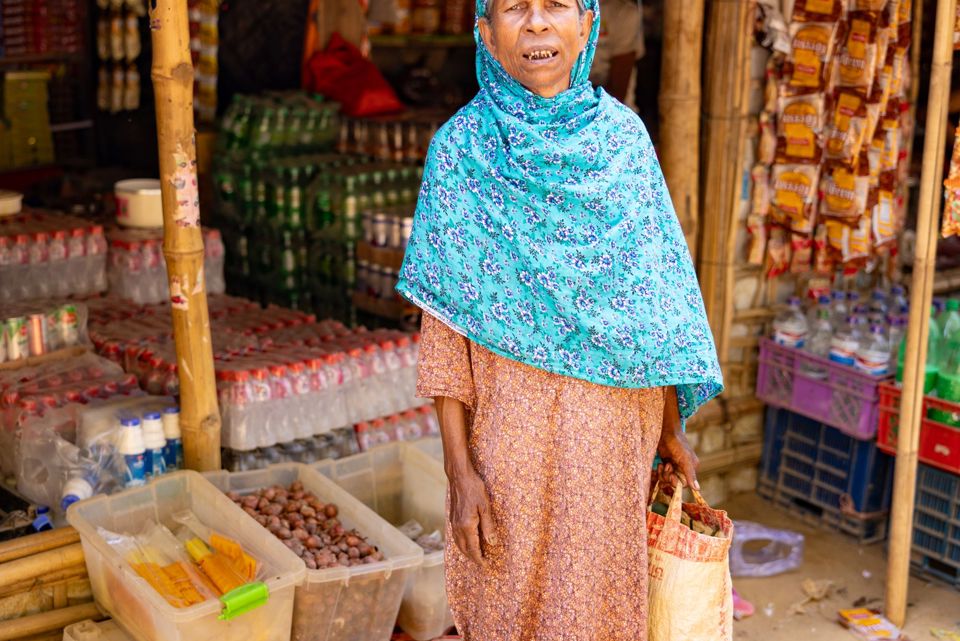Aurora and Mark from the content and communication teams visited Bangladesh in May for a content collection trip. Trips like these are a vital way for us to share stories from the field with our generous community of supporters.
This is part two of a two-part series. Read part one here.

View of the refugee camp in Cox's Bazar, Bangladesh. Photo: Mark Harding/Caritas Australia
Our next stop after Khulna was Cox’s Bazar, home to the largest refugee camp in the world. Over 1 million Rohingya people are stuck in limbo, not allowed to live freely in Bangladesh, and unable to return to their homes in Myanmar, where they face the prospect of persecution, violence and death.
We were given a safety briefing before entering the camp. Conditions are poor, and violence is increasing as international attention is drawn elsewhere. There is regular violent crime including alarming rates of gun violence. We were advised to always keep our Caritas Australia vests and t-shirts on so that we were clearly identifiable as NGO workers, to travel light, and hide as much equipment as we could in our backpacks to be more inconspicuous. There was limited time each day in the camp, we had to be packed up and gone by 3pm each day as it becomes much more dangerous in the evenings.
Caritas Bangladesh is implementing a WASH program, which supplies access to clean drinking water, sanitation and hygiene support. This is a critical program that helps keep people healthy and reduces the spread of disease in the crowded camp.
We met Sakhina, who has been living in the camp for seven years after escaping Myanmar under a hail of gunfire. She lives in a shelter made primarily from tarpaulin and bamboo, with her daughter who lives with a disability. Her story is powerful and harrowing, and it's hard to imagine what this kind, gentle woman has had to endure. The WASH program has meant that Sakhina has an accessible latrine right outside her home, complete with railings and a ramp so that her daughter can use the latrine without assistance.
The experience of filming in the camp was unique, with less time and space to use in order to get the right content, but this just made us more creative in our approach. We didn’t have as many mishaps as we did in Khulna, but Mark did bang his head on the door every single time he walked in or out of Sakhina’s home. Every. Single. Time.
Sakhina’s story is something we’re really looking forward to sharing with you all, as is the broader story of life in Cox’s Bazar. It is a difficult place to live – while we were there a Caritas volunteer was injured in a shooting, and after we left a fire destroyed a Caritas warehouse and several dwellings. Our colleagues in Bangladesh worry that it has become a “forgotten crisis”.
A huge thank you is due to our colleagues in Bangladesh who hosted us and took time out of their busy schedules to help us get everything we needed. Another thank you is due to Monoranjon, his community and family, and Sakhina, her family and the residents of the camp in Cox’s Bazar. Their generosity, kindness, and willingness to share their lives and stories with us is something we will always be grateful for.

Sakhina has lived in the refugee camp in Cox's Bazar for over 7 years. Photo: Mark Harding/Caritas Bangladesh

















